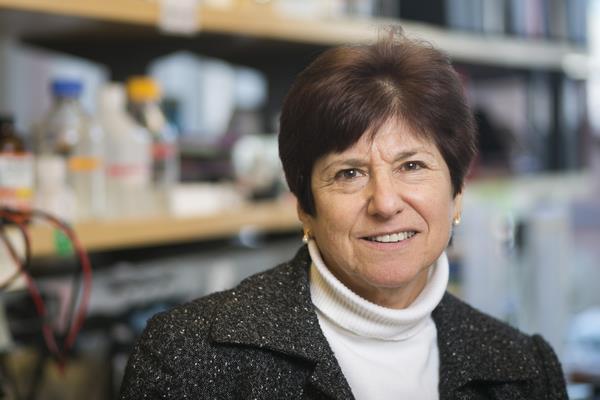-
About
- Departments & Offices
-
Academics
- Physician Assistant
- Special Master’s (MBS)
-
Admissions & Financial Aid
- Tuition & Fees
-
Student Experience
-
- Student Resources by Program
- Academic & Student Support
- Wellness & Wellbeing
- Student Life
- Events & Traditions
-
-
Research
- Research Labs & Centers
-
Local & Global Engagement
- Global Health Programs
- Community Engagement

Gail Sonenshein
(617) 636-4091
136 Harrison Avenue

Research/Areas of Interest
For over 25 years, our research has focused on elucidating the roles of nuclear oncogenes and their targets in cancer, with a particular focus on breast cancer. My group made seminal contributions to our understanding of the Myc oncogene, including the first demonstration of dysregulated cell cycle control of c-Myc gene expression in cancers driven by Ras signaling and the discovery that transcription of c-Myc is regulated by nuclear NF-.B. In paradigm-shifting discoveries, we found that the NF-.B family of transcription factors is aberrantly active in breast cancer and promotes tumor cell survival. More recently we identified the cell surface transmembrane ADAM8 sheddase protein, which is non-essential under physiological conditions, as a downstream target of an NF-.B signaling pathway. Importantly, we showed that ADAM8 is an independent predictor of poor clinical outcome, and a driver of triple-negative breast cancer (TNBC) growth and metastasis. High levels of ADAM8 (ADAM8+) were detected in 34% of TNBC patients and in 48% of all breast cancer metastases but absent in normal breast tissue. More recently, we determined that 30% of all breast cancers are ADAM8 positive. Orthotopic and cardiac mouse models validated the transmembrane ADAM8 protein as a promising, accessible, novel target for antibody-based therapy of TNBC and metastatic breast disease. Work is in progress to bring an anti-ADAM8 antibody to the clinic for cancer therapy and to elucidate the roles of miRNAs as markers of exposure to environmental carcinogens.
Education
- Doctor of Philosophy, Massachusetts Institute of Technology, Cambridge, United States, 1970
- Bachelor of Science, State University of New York Polytechnic Institute, United States, 1965
Biography
Dr. Gail Sonenshein has a long track record of mentoring graduate students, postdoctoral fellows and junior colleagues, as well as supporting individuals through to independent funding. During her tenure at Boston University and Tufts University, Dr. Sonenshein has had the pleasure of training 33 PhD or MD/PhD graduate students and 24 postdoctoral fellows, many of whom currently hold faculty positions in academia or are working in biotech companies in the US or abroad. Her laboratory research focuses on the environmental causes of breast cancer, and has made seminal contributions to understanding the roles and regulation of nuclear oncogenes/transcription factors, including the Myc and the NF-�B family. The current overall research goals are to identify: 1) druggable targets to develop novel treatment modalities for breast cancer; 2) markers of exposure to carcinogens for screening. Ongoing projects include: (1) development of an antibody-based therapy to a downstream mediator of NF-�B signaling called ADAM8 and a companion diagnostic; (2) identification and use of miRNAs regulated by carcinogen for screening of exposure.